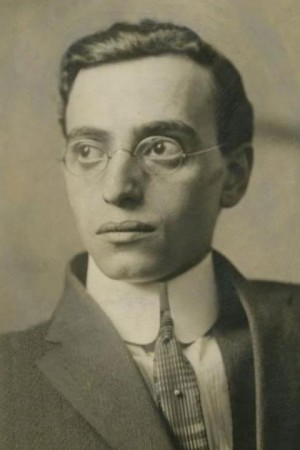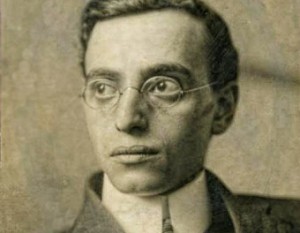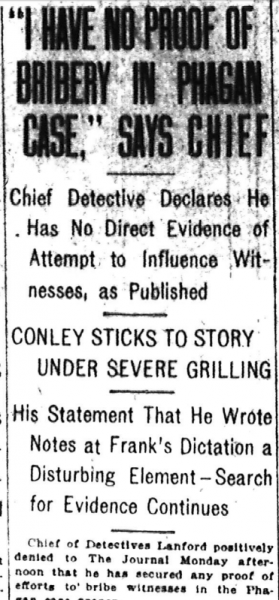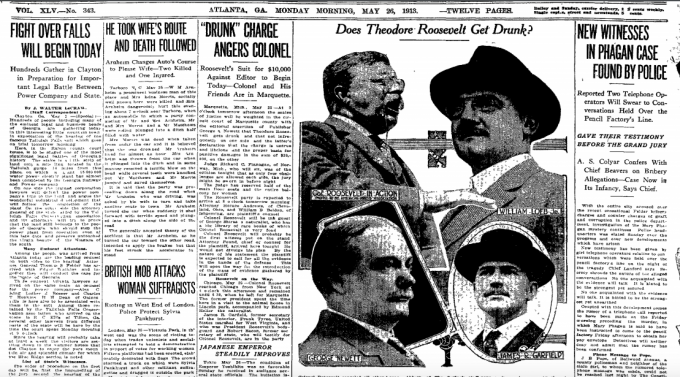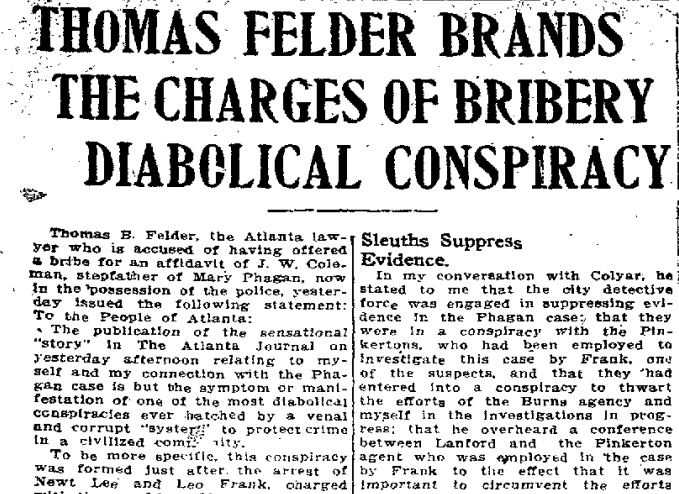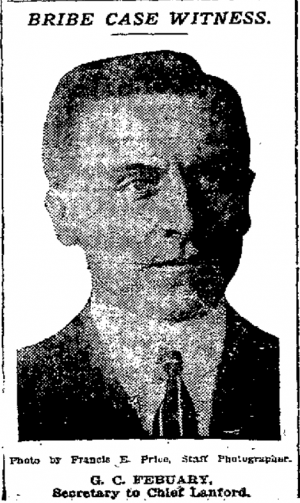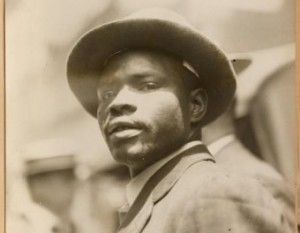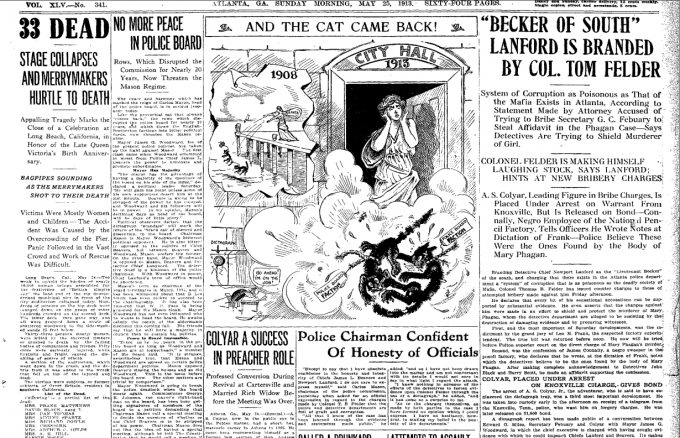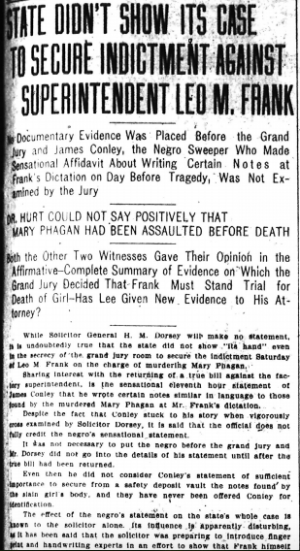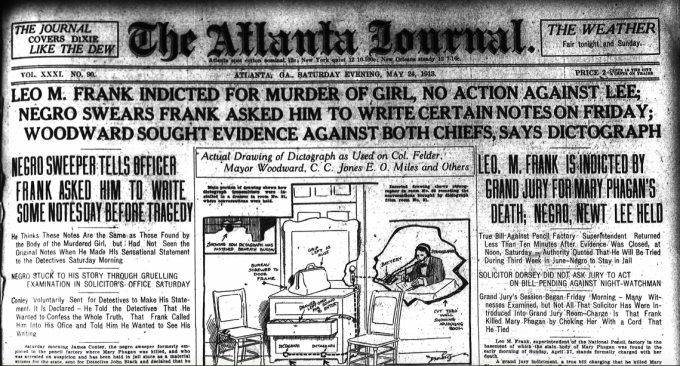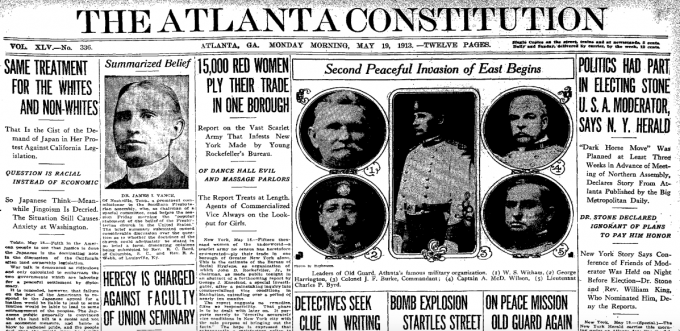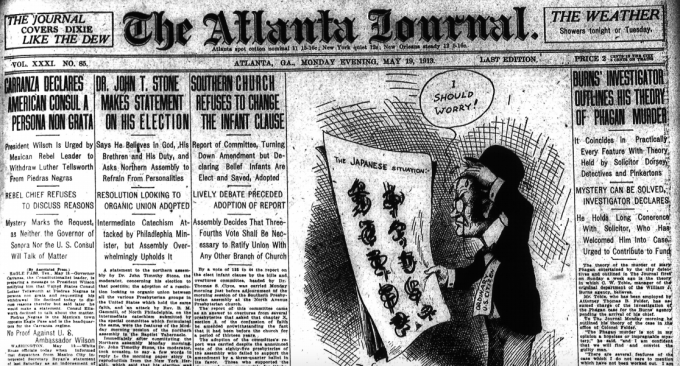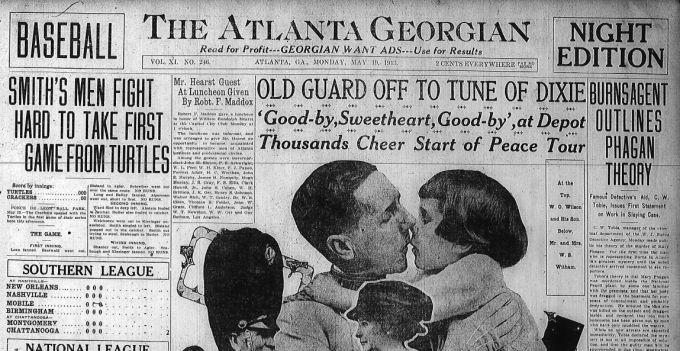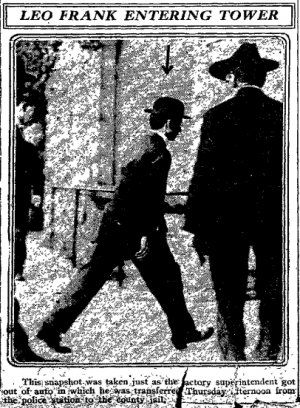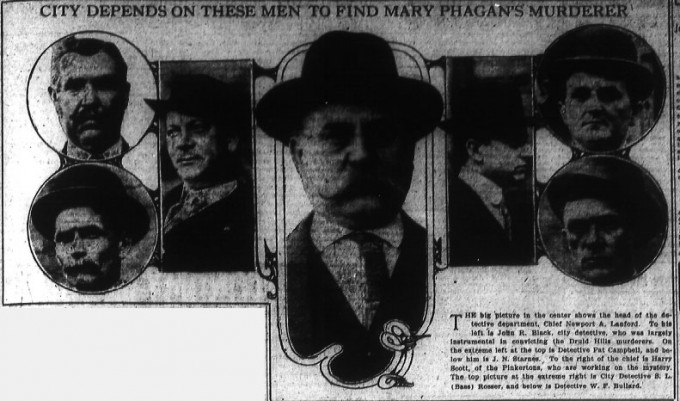 Originally published by the American Mercury on the 100th anniversary of the Leo Frank trial.
Originally published by the American Mercury on the 100th anniversary of the Leo Frank trial.
In a few days the Mercury will present Week Three of the trial of Leo Frank for the murder of Mary Phagan. Today, on the 100th anniversary of Leo Frank taking the stand in his own defense, we present a digest of opinion and contemporary sources on his statement.
AT THE CLIMAX of the Leo Frank trial, an admission was made by the defendant that amounted to a confession during trial. How many times in the annals of US legal history has this happened? Something very unusual happened during the month-long People v. Leo M. Frank murder trial, held within Georgia’s Fulton County Superior Courthouse in the Summer of 1913. I’m going to show you evidence that Mr. Leo Max Frank inadvertently revealed the solution to the Mary Phagan murder mystery.
In addition to being an executive of Atlanta’s National Pencil Company, Leo Frank was also a B’nai B’rith official — president of the 500-member Gate City Lodge in 1912 — and even after his conviction and incarceration Frank was elected lodge president again in 1913. As a direct result of the Leo Frank conviction, the B’nai B’rith founded their well-known and politically powerful “Anti-Defamation League,” or ADL. Continue Reading →

